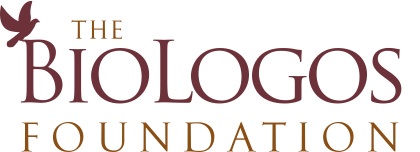It happened again this week. I received an e-mail from a student at a major university
who is in the midst of a profound personal crisis. Was this a financial problem? A failure in course work that threatens a lifelong career
dream? A romantic breakup? No doubt there are plenty of
those kinds of crises happening all over college campuses. But none of those accounted for her
distress. Instead, my
correspondent was having a wrenching crisis of worldviews, and her deepest
foundations were being shaken.
She had been home-schooled by loving parents who were
dedicated Christians, and who made sure that she learned the deep and profound
principles of their faith. She
made a personal commitment to that faith as a teenager, and her relationship
with Christ was a central part of her life. She arrived at university fully aware that this secular
environment might threaten her faith, but she quickly found other believers to
share experiences with, and she learned to love the undergraduate experience.
That is, until she decided to major in biology. For the first time, she had the chance
to see the scientific evidence for the actual age of the earth (4.55 billion
years) and the theory of evolution.
Like 45% of Americans, she had based her previous conclusions on an
ultraliteral reading of Genesis promoted in many conservative churches – that
the earth is less than 10,000 years old, and that all species of animals and
plants came into being by individual acts of special creation by God. But with gathering alarm, she
could see that a veritable mountain of data from physics, cosmology, chemistry,
geology, paleontology, biology and genomics made that interpretation of Genesis
no longer tenable. She tried to
think of ways that the scientific evidence could have been misunderstood, or
even (as she had heard from some Christian friends) that there was a widespread
scientific conspiracy to promote these false ideas, but she could not see how
to dismiss the massive weight of evidence. She sought guidance from her professor, but he made no
secret of the fact that he thought religion was a waste of time. The ice was cracking under her
feet. If her spiritual mentors had
been wrong about origins, might they have been wrong about other things? Was faith just an illusion? Was God really out there?
She is not alone.
Over the last three years since my book The Language of God was published, I have heard from dozens of
individuals experiencing this same crisis. I have tried to provide reassurance, based on my own path
from atheism to belief, and my own experience as a physician, geneticist, and
Christian, that science and faith are entirely compatible. We humans have the privilege of
discerning the truth from both of
God’s books – the book of God’s words (the scriptures) and the book of God’s
works (nature). But when the Bible
is read as a scientific textbook, or when scientific findings are taken to
prove or disprove certain spiritual conclusions, trouble ensues.
It is a sad reality that this kind of misunderstanding has
led to an increasingly hostile battle of worldviews, especially in the United
States. The conversation is
particularly dominated by those at the extremes of the spectrum. Some of those are religious fundamentalists. Some are scientific
fundamentalists. This contentious
atmosphere has often discouraged a more deep and meaningful dialogue. And the battle is having a lot of
innocent casualties, like my college correspondent.
The voice that is not being heard is one that strives for
theological and scientific rigor, that takes seriously the claims of both
theism and science, and that finds compelling evidence for their
compatibility. To try to fill that
void, my colleagues Darrel Falk (Ph.D., biology), Karl Giberson (Ph.D.,
physics), Syman Stevens (M.A., philosophy), and I have founded the non-profit
BioLogos Foundation. The word
BioLogos arises by combining the Greek words Bios (life) and Logos (the Word),
reflecting our conviction that the universe, and the life within it, can be
understood as a manifestation of God’s creative purpose.
We are delighted and honored to have been asked by Steve
Waldman to host this new Beliefnet blog on Science
and the Sacred. Today’s
inaugural entry could thus be considered our “BioLoguration”. New entries will appear weekly, penned
by one of us, or by guest bloggers that will offer new and refreshing insights
on the interface between science and faith. We encourage responses (but let’s keep it civil,
please!). We will also aim to post
daily images, quotes, and prayers on this same site.
We would like to point interested readers to a new web
site: www.biologos.org, also being
unveiled on April 28, 2009, which contains many more resources for those interested
in this topic. That includes thoughtful responses to more than two
dozen of the most frequently asked questions about science and faith – as posed
by atheists, agnostics, skeptics, seekers, and believers in the more than 1000
e-mails and letters I have received since The
Language of God was published.
My college correspondent is still searching for the
truth, but she was reassured to know that it is possible to embrace both
science and faith, without having your brain explode. I hope these new resources will help her. I hope they will help you also. Join us here and at www.biologos.org for a chance to explore some profound questions about science
and the sacred.
Francis S. Collins, M.D., Ph.D.
Former Director, Human Genome Project
